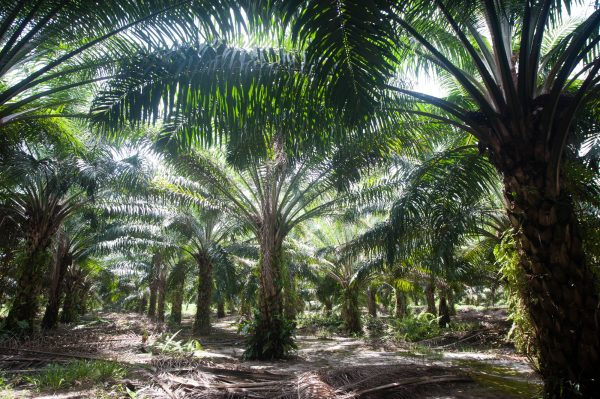Pacific Cash | Financial system | Southeast Asia
The 2 nations hope to persuade European regulators that their native certification efforts conform to the EU’s rigorous new regulation on deforestation.
A palm oil plantation in Kalimantan, Indonesia.
Credit score: Depositphotos
Indonesia and Malaysia will quickly ship envoys to the European Union to debate the affect of the bloc’s not too long ago handed deforestation regulation on their economically necessary palm oil sectors.
The announcement was made after a gathering yesterday between Airlangga Hartarto, Indonesia’s coordinating minister for financial affairs, and Malaysia’s Commodities Minister Fadillah Yusof, by which they mentioned “a number of urgent points” associated to the palm oil business, the Malaysian state media service Bernama reported.
“We agreed to proceed to guard the palm oil sector by strengthening efforts and cooperation to beat discrimination towards the palm oil business,” Airlangga told reporters. “The assembly (with Malaysia) agreed to conduct a joint mission to the EU to speak and forestall unintended penalties of the regulation to the palm oil sector and search potential collaborative approaches with events.”
The announcement comes after the EU’s passage in December of a regulation that can “make sure that a set of key items positioned on the EU market will now not contribute to deforestation and forest degradation within the EU and elsewhere on the earth.” The regulation, in response to the EU, “units robust necessary due diligence guidelines for corporations that need to place related merchandise on the EU market or export them.”
Whereas the regulation doesn’t apply solely to palm oil – it’s going to additionally apply to cattle, soy, espresso, cocoa, timber, and rubber, in addition to their varied derivatives – it’s prone to have an outsized affect on the sector, which has been strongly linked to the destruction of enormous swathes of tropical rainforest.
Indonesia and Malaysia, the world’s two largest producers of palm oil, have been harshly important of the regulation, simply the most recent European coverage that might affect their palm oil sectors. Each Malaysia and Indonesia additionally lobbied towards its passage. Kuala Lumpur even went as far as to threaten to halt palm oil exports to the EU, its third-largest purchaser of the product, altogether, although the 2 officers appeared to strike a extra diplomatic observe after yesterday’s assembly.
Airlangga mentioned the problem of an export boycott was not raised. “An export stoppage was not mentioned … it was not an choice,” he mentioned, in response to Reuters. He and Fadillah mentioned that the envoys dispatched to the EU would try and persuade European officers and potential consumers that the nations’ sustainability certifications, referred to as ISPO and MSPO, already met worldwide requirements and must be acknowledged in Europe.
“We at all times attempt to adjust to rules on the palm oil business, however they have to be honest and perceive the state of affairs in each nations, the place we attempt to assist smallholders come out of poverty,” Fadillah said, including that the envoys would “carry alongside representatives of smallholders to offer our views.”
Certainly, the Roundtable on Sustainable Palm Oil, an business watchdog group, this week said that smaller producers in Asia, Africa and Latin America – even those who harvest palm oil sustainably – would discover it exhausting to adjust to the EU’s rigorous requirements and “could also be pressured to bear” the results of the regulation.


